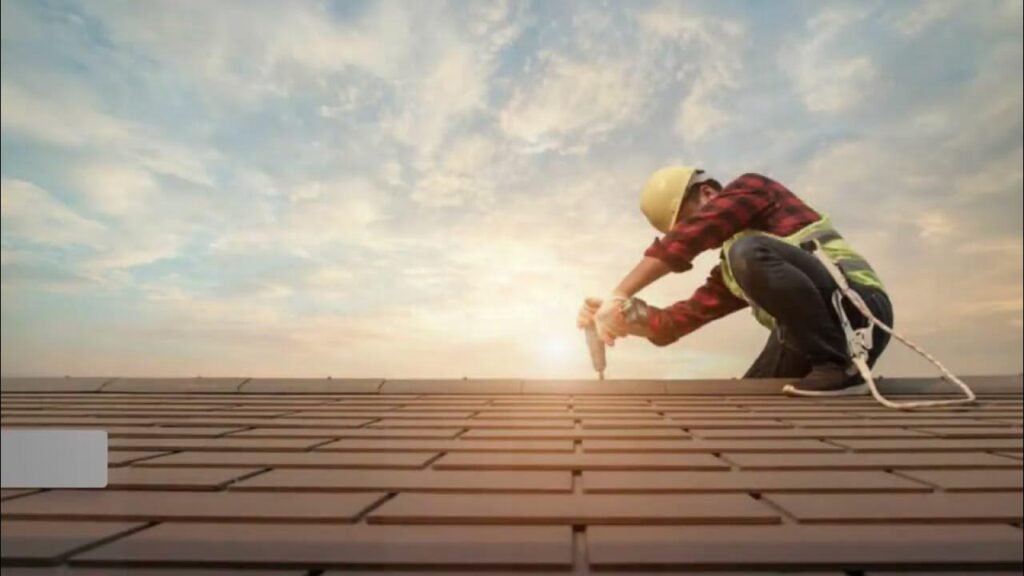A roof is far more than just the top layer of a home—it’s the shield that protects you from wind, rain, snow, sun, and all the unpredictability of nature. Yet, not all roofs are built with the same understanding of local challenges. A contractor from another region may offer impressive services, but their work can fall short over time without a grasp of local weather patterns.
That’s where the value of a local roofing contractor becomes clear. We will explore how working with a contractor from your area brings long-term benefits to your home by aligning with the unique climate conditions of your region.
Why Climate Knowledge Matters in Roofing
1. Tailored Material Choices Based on Regional Weather
Every region faces different environmental stressors—what works in a dry desert climate might be a terrible choice in a humid coastal zone. Local roofing contractors understand these distinctions through firsthand experience. In places like Texas, roofs endure intense sunlight, sudden hailstorms, and temperature swings.
Local roofers know which materials hold up under UV radiation and which ones resist cracking or expanding when temperatures fluctuate. This insight isn’t theoretical; it’s built on years of working in the same environment where your home is located.
A national contractor might recommend a general product without realizing how local weather weakens it. Like Pride Roofing and Construction, a local team evaluates these factors daily. They suggest roofing options already proven to perform well in your zip code, reducing the risk of future repairs and premature replacement.
2. Familiarity with Local Building Codes and Regulations
Weather plays a direct role in building code development. Areas prone to hurricanes, wildfires, or heavy snowfall often have strict property protection standards. Local roofing contractors are already well-versed in these regulations because they deal with them regularly.
When it comes to permitting, material specifications, wind load requirements, and insulation rules, a local contractor won’t need extensive research—they already know what your town expects. This means fewer delays, no legal missteps, and peace of mind that your roof is compliant. By contrast, an out-of-area contractor may unintentionally overlook these rules, creating a costly and time-consuming situation.
Local companies also have relationships with inspectors and permitting offices, which even smoothers the process. When your project meets the standards from the start, it stays on track and avoids costly adjustments later.
3. Adaptation to Local Seasonal Patterns and Installation Timing
Roofing is not just about materials and angles but also timing. Installing a roof during the wrong season can lead to long-term issues. Local contractors understand seasonal shifts and know how to schedule projects for maximum effectiveness.
They won’t lay shingles during a humid stretch that prevents adhesives from curing properly, nor will they plan major repairs during the rainy season. In climates like southern Louisiana and east Texas, where heat and storms can be intense, local crews know how to work around the weather and ensure installations are not rushed or compromised.
They also anticipate how changing seasons will impact your home and can recommend maintenance or upgrades before damage occurs. This proactive approach prevents minor issues from becoming emergencies, thanks to insights that only come from years of regional experience.
4. Local Reputation Encourages Accountability
Roofing is a high-stakes investment, and trusting someone unfamiliar with your environment can be risky. Local roofing contractors depend on their reputation in the community to keep their business going. They’re not flying in for a quick job and disappearing—they live and work in the same neighborhoods.
This proximity leads to higher accountability and stronger customer service. If something goes wrong, you’re not stuck dealing with a distant office; help is often just a short drive away. Local contractors know their future business relies on word of mouth and referrals, so they’re more likely to go the extra mile.
Pride Roofing, for example, stands behind its work because the team members are part of the same communities they serve. That local presence creates trust and ensures better long-term support than a company unfamiliar with the region.
5. Understanding of Storm Trends and Insurance Support
Regions with frequent storms, hail events, or hurricanes require a roofing company that can do more than install shingles. They need a partner who understands storm behavior and works with insurance adjusters. Local contractors often have extensive experience handling weather-related damage claims. They know the paperwork, the timelines, and how to document issues for adjusters properly.
More importantly, they can spot damage unique to your region’s weather issues that someone unfamiliar with the area might miss. For homeowners navigating insurance claims, this knowledge is vital. It means faster responses, better documentation, and a greater chance of receiving fair compensation. Hiring someone who’s seen the aftermath of dozens of local disasters brings another layer of confidence to your roofing decision in storm-heavy regions.
Your home deserves a roof built to withstand the specific challenges of your environment, not a one-size-fits-all structure chosen without regard to local conditions. A local roofing contractor brings more than tools and materials—they bring relevant experience, regionally proven solutions, and a level of accountability from living in the same climate as you.
From material selection and building code compliance to storm repair and installation timing, the value of hiring a local roofing contractor is built on their ability to understand and work with your weather, not against it. When your roof is in sync with your climate, you’re not just protecting your home but investing in its resilience for years.
